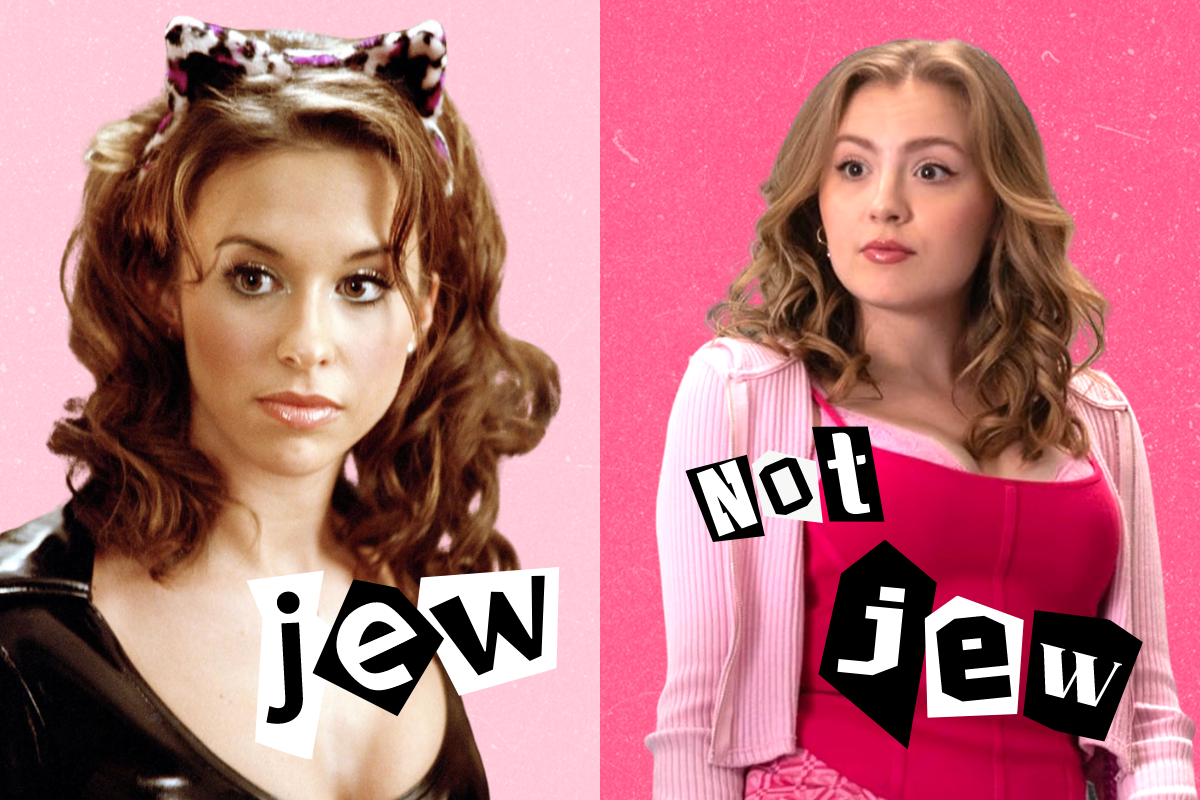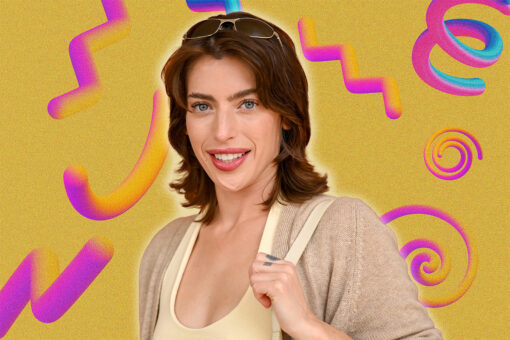I don’t think Gretchen Wieners is a Jewish icon. There, I said it. I got it out of the way early. Don’t get me wrong, she’s an icon, and she’s Jewish. But she is not, nor should she be, your favorite example of Jewish representation on screen.
OG Gretchen is an It Girl. She’s royalty — her father invented the toaster strudel, for crying out loud. She’s also the only Plastic who seems out of place in the group: She has brunette curls in place of ironed-straight bottle blonde hair, and she moves with an air of nervousness that Regina and Karen simply do not have. Gretchen lives in Regina’s shadow, both yearning for her attention and occasionally resenting her. But the only whisper of Gretchen’s Jewishness is a pair of white gold hoop earrings she gets for Hanukkah — earrings she cannot wear, because Regina has decided that gold hoops are her thing.
Jewishness for characters like Gretchen feels like throwaway representation, a reminder that the world around us isn’t as Christian as our screens would have us think (remember, this was 2004, diversity standards were super low). Her depth is not related to her Jewishness, but rather to her girlhood and to her friendship with and worship of Regina George.
Then again, when you dig deeper, perhaps Gretchen’s Jewishness is intrinsically tied to her character: a Jewish girl who doesn’t look like her white, blonde friends, who desperately tries her best to live up to the social and physical standards of the people around her, whether it be ‘The Plastics’ or ‘Cool Asians.’ Gretchen is the assimilating Diaspora Jew, and Lacey Chabert’s portrayal of Gretchen feels authentic in that way.
But Jewish people aren’t the only people who have experienced this phenomena, nor had to assimilate or change themselves in order to be accepted by a society that centers white Christianity. In fact, it’s the story that feels almost universal, especially to those whose families have emigrated to places like America, England and Australia. That’s why when I saw Mean Girls The Musical The Movie (the actual title of the 2024 remake is simply ‘Mean Girls’ but this felt like the most concise way to differentiate between the two movies), I wasn’t all that upset about Gretchen no longer being Jewish.
Gretchen in Mean Girls The Musical The Movie is much like her predecessor. She follows Regina around like a lost puppy dog; she is infinitely more desperate for Regina’s approval than anyone else. MGTMTM Gretchen knows that she will always be compared, in Regina’s eyes, to Janice. She strives to be included, to be popular, to be like Regina George. This Gretchen doesn’t get gold hoops for Hanukkah, but she does have some cutesy backstory with her abuelito. Like the OG Gretchen, this Gretchen passes as WASPy as best she can — but it’s never quite good enough for Regina.
Bebe Wood makes her Gretchen just as desperate and scared as Chabert’s, and she manages to do it in a way that feels authentic to both her as an actor and Gretchen as a character. It’s not fair that it feels as though we need to pit ourselves against other minorities in order to be seen and heard. Maybe it’s okay that we sacrifice Gretchen’s Jewishness so that other people can see themselves on screen in this small, teeny way. Twenty years later, media representation for all minorities has gotten better — but not much better.
Maybe some people feel upset because we have such little Jewish representation that we cherish any scrap or mention of Hanukkah that gets thrown our way. Maybe it would have felt validating if Gretchen in the remake said ‘saba’ (Hebrew) or ‘avuelo’ (Ladino) instead of ‘abuelito.’ Maybe it’s a missed opportunity to showcase diverse, underrepresented modes of Jewish culture — why couldn’t Gretchen be Latina and Jewish? It’s okay to feel annoyed. I just think in the grand scheme of media representation, Gretchen Wieners is not who we need to be focusing on.
Let’s focus on getting more substantive Jewish roles in movies, characters whose Judaism is centered and implicitly informs the story, characters who make us feel understood and heard, characters who are so real it feels like they could be the person sitting next to you at synagogue.
Those are the characters we need to be demanding, not another Gretchen Wieners in a movie musical remake that — I’m sorry, let’s be honest — isn’t even that good.



